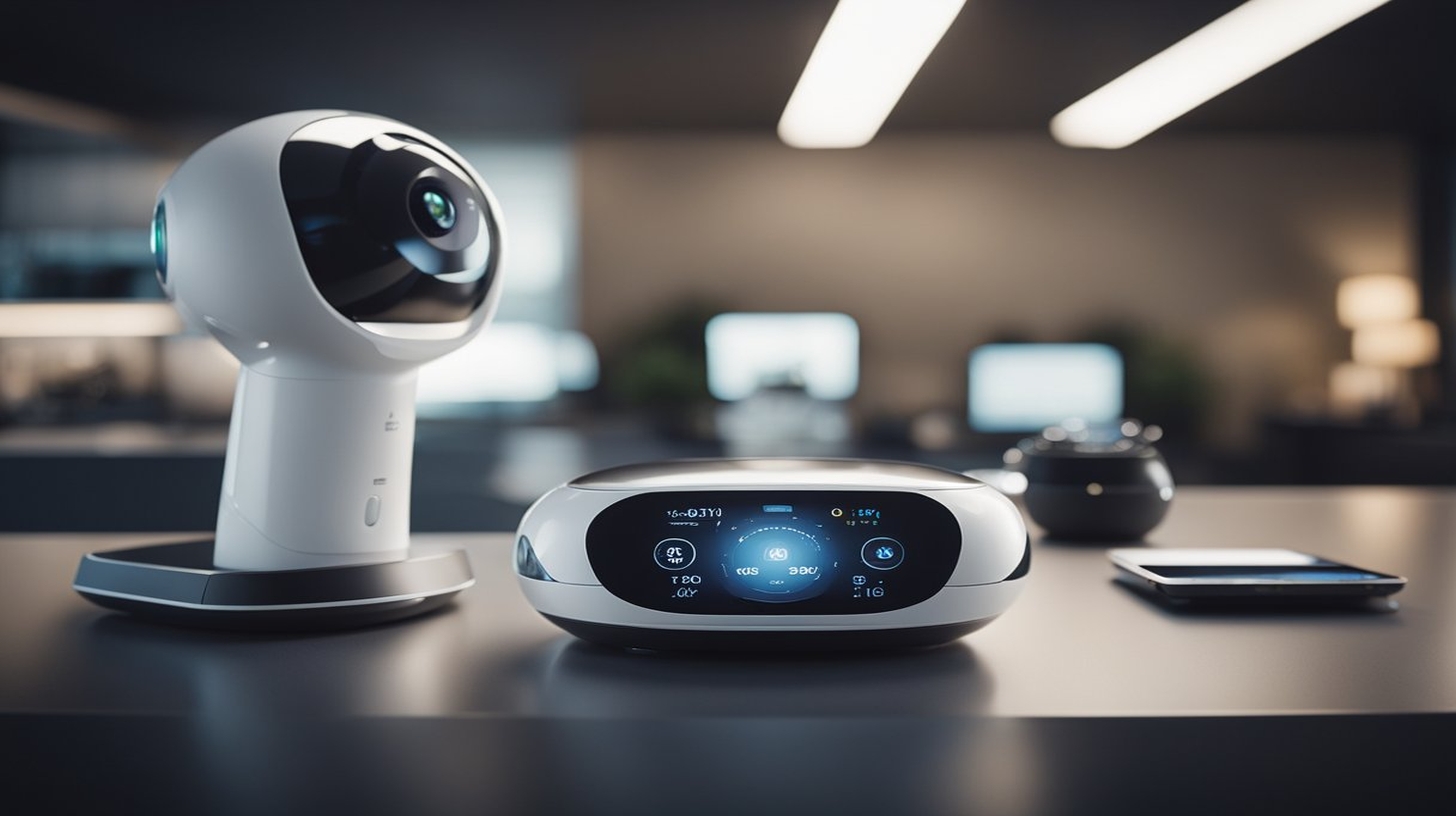
The Rise of AI Assistants in Everyday Life: Transforming Daily Tasks and Interactions
The evolution of AI assistants.
Evolution of AI Assistants
AI assistants have made huge leaps forward since their early days. They've gone from simple voice commands to smart helpers that can understand context and handle complex tasks.
Historical Overview
The first AI assistants were basic chatbots in the 1960s. ELIZA, created in 1966, could hold simple conversations by matching patterns in user input.
In the 1990s and 2000s, virtual assistants like Microsoft's Clippy appeared. These early helpers had limited functions but paved the way for more advanced AI.
Siri launched in 2011 , marking a big step forward. It could understand voice commands and integrate with phone features. Google Now and Microsoft's Cortana soon followed.
Technological Advances
Natural language processing improved greatly in the 2010s. This let AI assistants understand context and nuance better.
Machine learning allowed assistants to learn from user interactions. They got better at predicting needs and giving personalized responses.
Cloud computing enabled more powerful AI . Assistants could tap into vast databases and processing power to handle complex queries.
Integration with smart home devices expanded AI capabilities. Assistants could now control lights, thermostats, and other connected gadgets.
Adoption Milestones
In 2014, Amazon released Alexa and the Echo smart speaker. This brought AI assistants into many homes for the first time.
By 2016, Google Assistant launched on smartphones and Google Home devices. Apple's HomePod followed in 2018.
AI assistants became common in cars around 2019. They could handle navigation, music, and hands-free communication.
In 2020, the pandemic sped up adoption. More people used AI assistants for work, shopping, and staying connected while at home.
Integration Into Daily Activities
AI assistants are becoming more deeply woven into our everyday routines. These smart tools help manage homes, boost productivity, enhance communication, and provide entertainment.
Smart Homes
AI assistants play a key role in making homes smarter and more efficient. They can control lights, thermostats, and security systems with voice commands or apps. Smart assistants like Alexa and Google Assistant can manage multiple connected devices at once.
For example, a simple "Good morning" command could:
- Turn on lights
- Start the coffee maker
- Read out the day's weather and news
These AI-powered systems learn user preferences over time. They adjust home settings automatically based on patterns and habits. This leads to energy savings and increased comfort.
Smart refrigerators with AI can track food inventory and suggest recipes. They can even place online grocery orders when supplies run low.
Personal Productivity
AI assistants are transforming how people manage their time and tasks. They can schedule appointments, set reminders, and create to-do lists. Many can understand context and natural language, making interactions feel more human-like.
Some key productivity features include:
- Calendar management
- Email sorting and prioritization
- Note-taking and transcription
- Travel planning and booking
AI tools can analyze work patterns and suggest ways to improve focus and efficiency. They might recommend optimal times for deep work or breaks based on personal productivity data.
Virtual assistants can handle routine tasks , freeing up time for more important work. This includes scheduling meetings, answering simple emails, or finding information quickly.
Communication
AI is changing how people connect and interact. Language translation apps powered by AI allow real-time communication across language barriers. This opens up new possibilities for travel and international business.
AI assistants can:
- Screen calls and messages
- Suggest responses to emails or texts
- Transcribe voice messages to text
- Help draft professional communications
Voice assistants are becoming more natural in conversation. They can understand context, tone, and even humor, making interactions feel more genuine.
AI writing tools help improve grammar, style, and clarity in written communications. This is useful for both personal and professional writing tasks.
Entertainment
AI is reshaping the entertainment landscape. Streaming services use AI to analyze viewing habits and recommend personalized content. This helps users discover new shows and movies they might enjoy.
In gaming, AI creates more realistic and challenging opponents. It can also generate unique storylines and game worlds that adapt to each player's choices.
AI assistants can:
- Create custom playlists based on mood or activity
- Suggest new music or podcasts
- Schedule and record TV shows
- Provide real-time sports updates and statistics
Voice-controlled AI makes it easy to play music, audiobooks, or podcasts hands-free. This is especially useful while cooking, exercising, or driving.
AI is also enhancing virtual and augmented reality experiences. It can create more immersive and interactive digital worlds for both entertainment and educational purposes.
Impact on Society
AI assistants are changing how people live, work, and interact. These changes bring both benefits and challenges for individuals and society as a whole.
Consumer Behavior
AI assistants are reshaping consumer habits. Many people now rely on smart speakers and virtual assistants for daily tasks. These devices help with shopping, scheduling, and finding information.
Voice shopping through AI assistants is growing. Consumers can order products just by speaking. This makes shopping more convenient but may lead to impulse purchases.
AI-powered recommendation systems influence what people buy and watch. Netflix and Amazon use AI to suggest content and products. This can expose users to new things but may also create filter bubbles.
Chatbots are changing customer service . Many companies now use AI to handle customer questions. This provides 24/7 support but some users find it frustrating.
Data Privacy Concerns
AI assistants collect large amounts of personal data. This raises privacy issues. Many devices listen constantly for wake words, which worries some users.
Companies use this data to improve their services. But they may also share or sell it. Users often don't know how their information is used.
There are risks of data breaches. If hackers access AI assistant data, they could steal personal information. This could lead to identity theft or blackmail.
Some governments are creating new privacy laws. These aim to protect consumer data from misuse. But keeping up with fast-changing AI technology is challenging.
Employment Shifts
AI is changing the job market. Some jobs are becoming obsolete as AI takes over routine tasks. This affects industries like manufacturing, customer service, and data entry.
New jobs are also emerging. AI is creating roles in data science, machine learning, and AI ethics . But these often require high-level skills and education.
Workers may need to adapt and learn new skills. Governments and companies are starting to offer retraining programs. These help workers transition to AI-related jobs.
AI assistants are boosting productivity in many fields. They help with tasks like scheduling, research, and analysis. This allows workers to focus on more creative and complex work.
Ethical and Regulatory Considerations

AI assistants bring up important questions about privacy, fairness, and safety. Governments are working on rules to make sure these systems help people without causing harm.
AI Ethics
AI assistants need to protect user data and avoid bias. Companies must be clear about what information they collect. They should also make sure their AI doesn't treat people unfairly based on race, gender, or other factors.
Virtual patient assistants in healthcare show how important ethics are. These AI helpers can guide patients with chronic conditions. But they must keep medical info private and give correct advice.
AI should respect human values and rights. Developers need to think about how their creations might affect society. This includes looking at jobs, education, and creative work.
Government Regulations
Many countries are making laws about AI. These rules aim to keep people safe and make sure AI is used responsibly. Some focus on data protection, while others look at AI decision-making.
The European Union is working on the AI Act . This law would group AI systems by risk level. High-risk AI would face strict rules.
In the US, states are passing their own AI laws. These often cover things like facial recognition and automated decisions. The federal government is also looking at nationwide AI rules.
Regulations try to balance innovation with safety. They want companies to create helpful AI while protecting people's rights.
Frequently Asked Questions

AI assistants have become integral to daily life, reshaping how we work, communicate, and manage tasks. They offer personalized support, enhance productivity, and provide convenient solutions across various domains.
What are the common applications of AI personal assistants in daily activities?
AI personal assistants help with scheduling appointments, setting reminders, and managing calendars. They can control smart home devices, play music, and answer questions.
These assistants also assist with online shopping, provide weather updates, and offer navigation directions. AI-powered personal assistants boost everyday productivity by automating routine tasks.
In what ways have AI assistants improved efficiency for consumers and businesses alike?
AI assistants streamline workflows by handling repetitive tasks like data entry and appointment scheduling. They provide quick access to information, reducing time spent on research.
For businesses, AI assistants can process orders and answer frequently asked questions , improving customer service efficiency. They also help with task prioritization and time management for both individuals and teams.
What are the implications of AI assistants on privacy and personal data security?
AI assistants collect and process large amounts of personal data to function effectively. This raises concerns about data storage, usage, and potential breaches.
Users must be aware of the privacy policies of AI assistant providers. Implementing strong security measures and giving users control over their data are crucial steps in addressing these concerns.
How have AI assistants changed the landscape of customer service and support?
AI assistants provide 24/7 customer support, handling basic inquiries and freeing up human agents for complex issues. They offer quick response times and consistent service quality.
These assistants can process orders and answer frequently asked questions , improving efficiency. They also gather customer data to personalize interactions and improve service over time.
What are the challenges in creating AI assistants that can seamlessly interact with humans?
Developing natural language processing capabilities that understand context and nuance is a major challenge. Creating assistants that can handle complex, multi-step requests also proves difficult.
Ensuring AI assistants can adapt to different accents, languages, and cultural contexts is another hurdle. Balancing automation with the need for human-like interaction presents ongoing challenges for developers.
How do AI assistants learn and adapt to the preferences and habits of users?
AI assistants use machine learning algorithms to analyze user interactions and behavior patterns. They track frequently used commands, preferred settings, and common queries to personalize responses.
These assistants also learn from user feedback and corrections. Over time, they build a profile of each user's habits and preferences, allowing for more tailored and efficient assistance.
iOS 17.2: What You Need to Know






Comments
I’m loving how AI knows exactly what music I want to listen to! It’s like having a DJ who knows me better than I know myself. Plus, discovering new shows has never been easier.
Does anyone else find it fascinating how AI has made language barriers almost non-existent? The real-time translation capabilities are beyond impressive, especially for someone who travels frequently for work.
I’ve noticed that my daily routine has become so much smoother with AI assistants. They handle everything from my morning alarms to scheduling appointments, and it’s like having a personal assistant without the cost!
Leave a Comment